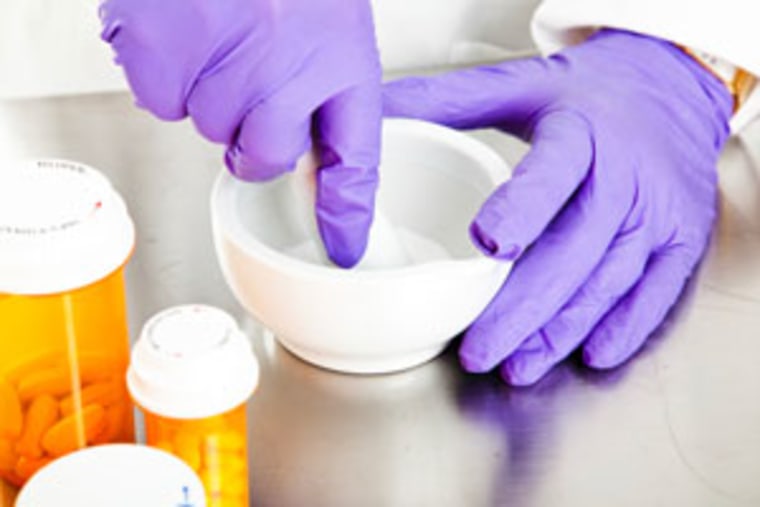A Texas compounding pharmacy has recalled all its sterile products after 15 people who got calcium injections developed bacterial infections, the Food and Drug Administration said Sunday.
It’s the latest in a series of high-profile recalls of contaminated drugs made by the pharmacies, which mix and distribute specialty drugs and medical products.
“The U.S. Food and Drug Administration is alerting health care providers and patients of a voluntary nationwide recall of all products produced and distributed for sterile use by Specialty Compounding, LLC, Cedar Park, Tex.,” the FDA said in a statement.
“The FDA has received reports of 15 patients from two Texas hospitals who received an infusion of calcium gluconate 2 grams in sodium chloride 0.9 percent for Injection, supplied by Specialty Compounding,” it added.
“Then the patients developed bacterial bloodstream infections caused by Rhodococcus equi. These infections are thought to be related to the infusions.” The bacteria infects mostly animals, who inhale it in dust. It rarely infects people, but any infectious bacteria directly injected into the bloodstream or muscle can cause trouble.
"Giving a patient a contaminated injectable drug could result in a life-threatening infection,” Dr. Janet Woodcock, director of FDA's Center for Drug Evaluation and Research, said in a statement.
“Facilities, health care providers and patients who have received the products since May 9, 2013 should immediately discontinue use, quarantine the products, and return the products to Specialty Compounding,” the FDA advises. “According to information provided by the firm, the recalled products were distributed directly to patients nationwide, with the exception of North Carolina. Recalled products were also distributed directly to hospitals and physicians' offices in Texas.”
The FDA has redoubled efforts to check on compounding pharmacies after an outbreak of fungal infections linked to a single Massachusetts pharmacy last year killed 63 people. So far, 749 people in 20 states have been sickened in that outbreak, the worst cases with meningitis or stroke, with some local abscesses and similar infections as well.
Inspection of the New England Compounding Center showed products made there were contaminated with bacteria and fungi. The pharmacy, which shipped dozens of different products in large batches all over the country, has closed down.
FDA inspections have led to several other recalls. The agency is asking Congress for more powers to regulate compounding pharmacies. Currently, states are supposed to regulate compounders while the FDA sticks to drug manufacturers.
But FDA argues there are many pharmacies like NECC and the Texas pharmacy, Specialty Compounding, that make products in large batches and behave more like manufacturers than pharmacies.
A Senate bill would give FDA authority over compounding pharmacies that produce sterile drugs without a prescription and ship those drugs across state lines. Some consumer groups, as well as some Republicans in Congress, say the FDA already has enough power and simply hasn’t been exercising it.
